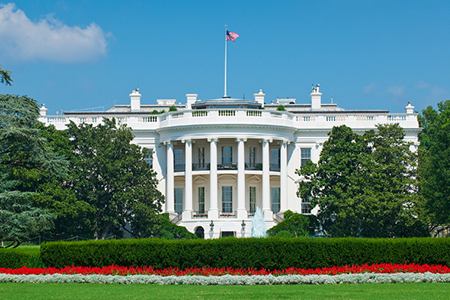(TNS)—In President Trump’s America, it can be hard to keep up.
There are executive orders, memoranda, proclamations and tweets. Changes to immigration, health care, the armed forces and crime. More than two dozen actions have been signed in more than a month. If it feels some days like your head is spinning, take solace: A lot of others feel that way, too.
So it’s no surprise that last month, as airports filled with protesters and newspapers filled with leaks, one executive order garnered less attention than most: action to begin scaling back the Dodd-Frank Act.
On February 3, Trump signed an executive order directing his Treasury secretary to re-evaluate financial regulations enacted after the 2008 crisis. While vague in nature and without explicitly naming Dodd-Frank, the order aims to loosen financial rules by chipping away at the law created during the Obama Administration.
Though expected—Trump previously vowed to dismantle Dodd-Frank—the move was a departure from his populist message in the election. In announcing his hope “to be cutting a lot out of Dodd-Frank,” before signing the order, Trump praised Wall Street leaders such as BlackRock CEO Larry Fink, saying, “Larry did a great job for me…he made me great returns.”
That Wall Street alignment, combined with the order’s vagueness, raised questions among observers about what could be ahead for financial regulation—and how it could intersect with industries, including real estate. Here, we break it down:
So, what is Dodd-Frank?
Adopted in 2010, the Dodd-Frank Wall Street Reform and Consumer Protection Act placed regulations on the financial industry, with the goal of preventing another collapse. Shepherded by Democrats and born out of the demise of Lehman Bros., the 2,300-page law touches nearly every part of financial services. Among other rules, it requires banks to keep more money in reserve, instructs lenders to tighten standards, and created the Consumer Financial Protection Bureau (CFPB), the controversial agency tasked with preventing predatory finance practices.
Did it affect real estate?
Definitely—especially for lenders and borrowers. Before the recession, some lenders used less strict requirements for mortgage applications, lending to people who previously would not have qualified. Others steered borrowers into risky or high-cost loans. To prevent similar behavior, Dodd-Frank enacted tighter standards, banning risky loan products and requiring lenders to ensure that borrowers could repay. In response, the number of loans processed monthly by the average underwriter has dropped from 165 to 33, according to one study.
That’s meant consumers who cannot qualify for heavily regulated bank mortgages have been flocking to retail mortgage lenders. Construction has struggled, too. For years, builders and developers had trouble accessing capital from banks. Only recently has that loan volume ticked up.
What could it mean for real estate if the law was dismantled—and could that actually happen?
To answer the second question: probably not soon. Even while rapidly signing the order and calling the law a “disaster,” Trump has a long way to go before dismantlement could become a reality, observers say.
“This is going to be a very long slog,” says Peter Conti-Brown, an assistant professor at the Wharton School of the University of Pennsylvania. Even if the GOP proposes changes quickly, “it becomes a question of what gets prioritized.”
Unlike Obama, Trump’s priority is not financial regulation, he says. And even though Obama signed Dodd-Frank in 2010, implementation is still underway seven years later.
Instead, swift change will likely come through supervision or regulation.
“We’ll see new appointments: Steven Mnuchin for Treasury, three vacancies on the Federal Reserve,” Conti-Brown says. “…The Treasury is itself a regulator; you might see changes to the way of governing mortgage requirements. Or through the central bank, changes in interest rates.
“This is all going to have to do a lot with appointments.”
©2017 The Philadelphia Inquirer
Distributed by Tribune Content Agency, LLC
For the latest real estate news and trends, bookmark RISMedia.com.











